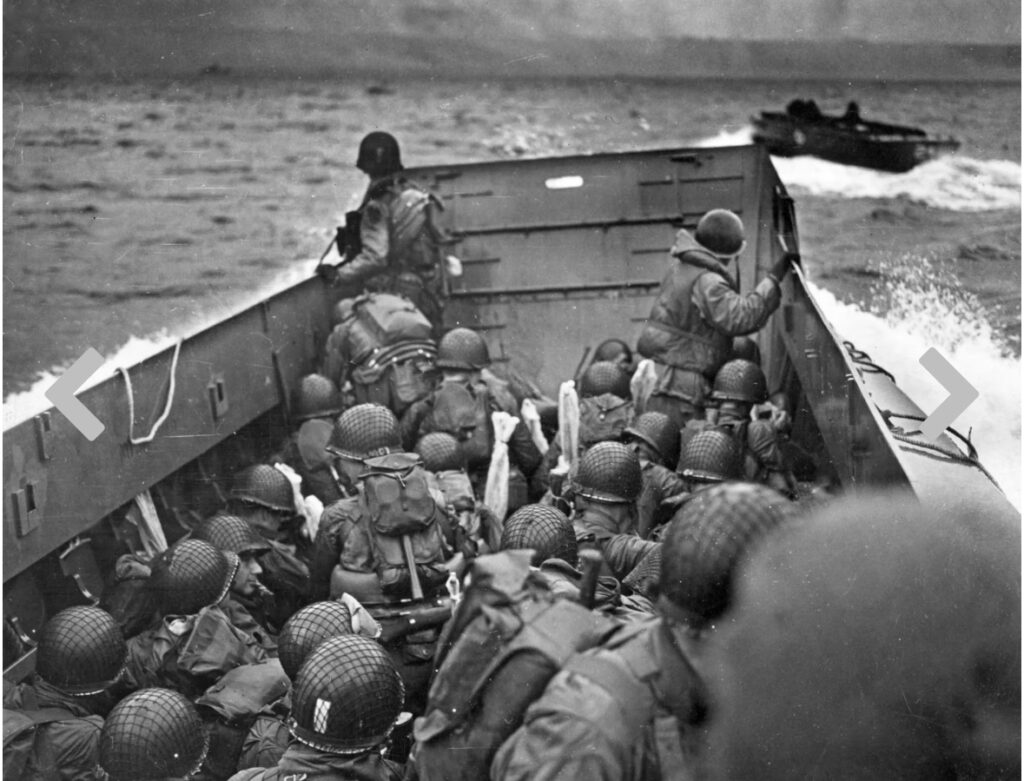D-Day, which occurred on June 6, 1944, is remembered as a pivotal moment in World War II.
On this day, Allied forces launched one of the largest amphibious military assaults in history on the beaches of Normandy, France.
This operation, codenamed Operation Overlord, marked the beginning of the end for Nazi Germany, as it initiated a major campaign to liberate Western Europe from Nazi occupation.
As a former British Army Soldier, remembering D-Day, is important for several reasons, especially when my grandfather, as many others, served in WWII and played his part in the D-Day landings.
Sidney, landed on the beaches under heavy fire from gun emplacements overlooking the beaches. The shore was mined and covered with obstacles such as wooden stakes, metal tripods, and barbed wire, making the taking of the beach and advance extremely difficult and dangerous.
Remembering this day and his involvement is significant and these are some of the reason why I think we should remember this date:
Personal connection: Firstly, for many of us, D-Day has a personal connection through family members who served. Remembering and sharing their stories helps keep their memory alive and allows us to appreciate our history on a personal level.
Honouring sacrifice and valor: D-Day represents one of the most significant military operations in history, involving immense bravery and sacrifice. Remembering this day honours the bravery and sacrifice of the soldiers, including many of our grandfathers, who fought and, in many cases, gave their lives during the invasion to secure freedom and peace.
Preserving history: The events of D-Day are a crucial part of both world history and military heritage. Understanding what happened on that day helps preserve the memory of the strategic, operational, and human dimensions of the Second World War.
D-Day is a key historical event that underscores the collaboration and unity among Allied nations — the United States, United Kingdom, Canada, and others. It exemplifies the strategic planning and execution required in wartime efforts.
Lessons of strategy and leadership: The Normandy invasion was a complex and meticulously planned operation that required outstanding leadership, coordination, and tactics. Modern soldiers, especially those with a professional interest in military strategy, can learn valuable lessons from studying the operation.
Commemorating unity and cooperation: D-Day was a combined effort by the Allied forces, symbolising the importance of international cooperation and unity in the face of common threats. This is a powerful message for former service members who value camaraderie and teamwork.
National pride and identity: For British soldiers, remembering D-Day fosters a sense of national pride and connection to their military heritage. It emphasises the role their country played in one of the pivotal moments of the 20th century.
Reflecting on peace and freedom: Reflecting on the sacrifices made on D-Day reinforces the value of the peace and freedoms enjoyed today. It underscores the importance of defending these values and the costs involved in securing them.
Continuing legacy of service: For a former British soldier, remembering D-Day serves as a reminder of the enduring legacy of service and duty. It places our own service within a broader historical context, affirming our connection to a long lineage of military personnel who have served their country.
To a modern former British soldier, D-Day is not just a historical event; it is a profound reminder of the principles of courage, sacrifice, and solidarity that define military service. It reinforces the values we upheld during our own service and highlights the continuous thread of duty and honour that runs through the armed forces.
By remembering D-Day and our grandfathers’ involvement, we not only pay tribute to their sacrifices but also reinforce the values of courage, resilience, and the enduring importance of fighting for freedom and justice and helps ensure that the contributions and sacrifices of those who came before are never forgotten and continue to inspire future generations.
Commemorating D-Day ensures that future generations understand the importance of freedom, the dangers of totalitarian regimes, and the high cost of war. It’s a reminder of the resilience and strength displayed by those who endured the hardships of war.
